Post
A catch
Save a catch to start your fishing logbook. You will be able to to share it with the community if yo want!
A fishing trip
Post an ad to go fishing with other fishermen
Save a catch to start your fishing logbook. You will be able to to share it with the community if yo want!
Post an ad to go fishing with other fishermen
Share a thought, a question with the community
My favorite cities
×Join our 15 fishermen in Austin in Lonoke. The fishing forecast is currently 2.5. The most caught fishes here are the lake herring, the channel catfish, the striped bass and the american shad. Come try the most famous fishing techniques like the trolling for bonito, trolling, fishing bream from a dock or jetty or dive fishing.
Our fishing forecast of Austin indicates the best time to go fishing in this city.
The Lake Herring
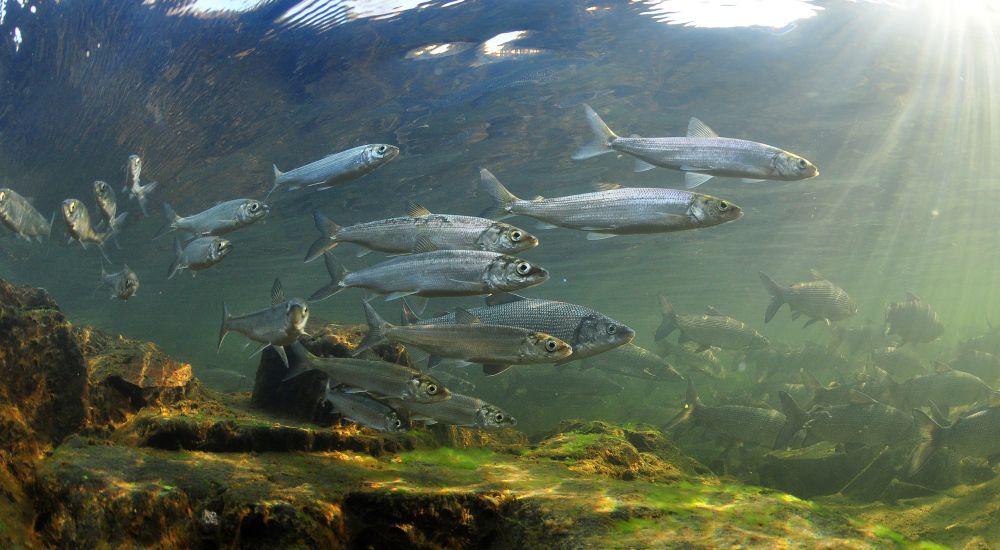
The Lake herring belongs to the Salmonidae family. This species sometimes grows up to 40 cm and 2.3 kg, but generally measures between 28 and 38 cm long and 170 to 907 grams. It can live from 6 to 10 years. It breeds from fall to early winter. It is fished in summer. Also called ciscos, they have a slim and elongated body that reaches an average length of 30 cm. Their body color is silvery with a pink or purple iridescence on the sides, with a blue, green or dark brown to lighter. Their underside is white, while their dorsal and caudal fins may be dark in color.
The Lake Herring is a famous fish you can catch in Austin.The Channel Catfish
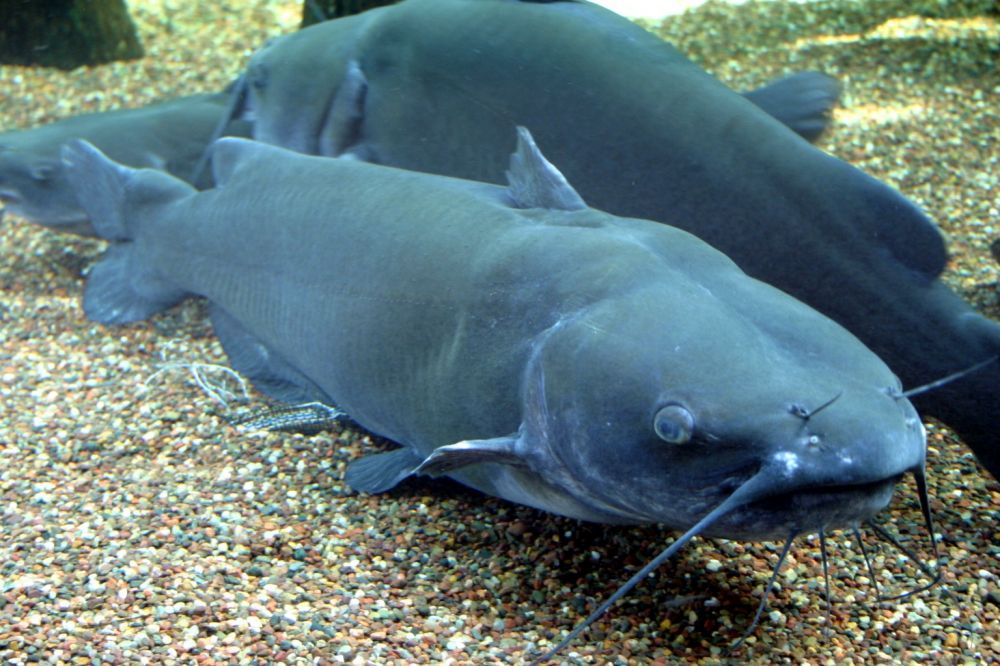
The Channel Catfish belongs to the Ictaluridae family. adults often weigh between 40 and 60 cm. The maximum weight recorded is 26.3 kg. It has a life span of 15 years. It breeds from May to July. The ideal time to fish them is from March to May, before the breeding season. The body is elongated and flattened. The eyes are small and the mouth is lesser. They have eight sensory barbells, or "whiskers", around their mouths. Four whiskers are on the chin, two on the muzzle and one at both corners of the mouth. The tail is deeply forked with the edge of the rounded anal fin. The adult color is pale grey to olive on the back and white to yellowish on the belly. The young are generally light grey at the back and silvery on the sides. The sides have scattered dark spots.
The Channel Catfish is a famous fish you can catch in Austin.The Striped Bass
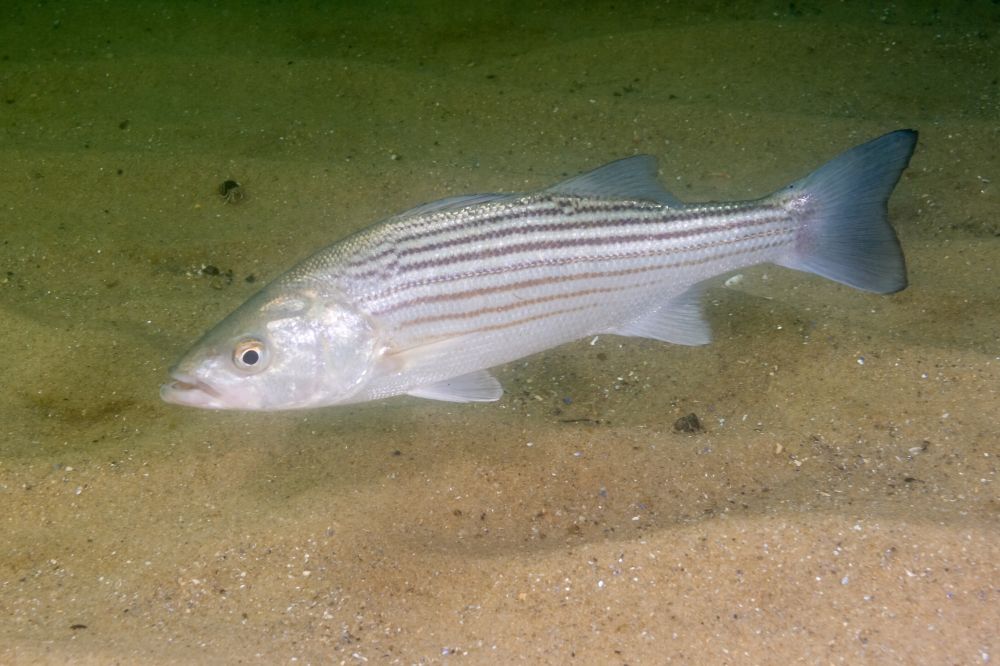
The Striped Bass belongs to the Moronidae family. It can weigh between 4 and 23 kg and size 46 to 140 cm. He can live up to 20 years. It spawns from April to mid-June. It can be fished from May to November. The striped bass has a laterally compressed body, a large terminal mouth, distinct dorsal fins and six to nine continuous lateral bands on both sides of its body. The second anal spine is shorter and thicker than the third anal spine. Striped bass tend to be pale green, olive, steel blue, black or brown on their back, with an iridescent white or silvery belly. Individuals over 25 years of age have been recorded and sexual maturity is reached between 2 and 4 years for men and between 5 and 8 years for women.
The Striped Bass is a famous fish you can catch in Austin.The American Shad
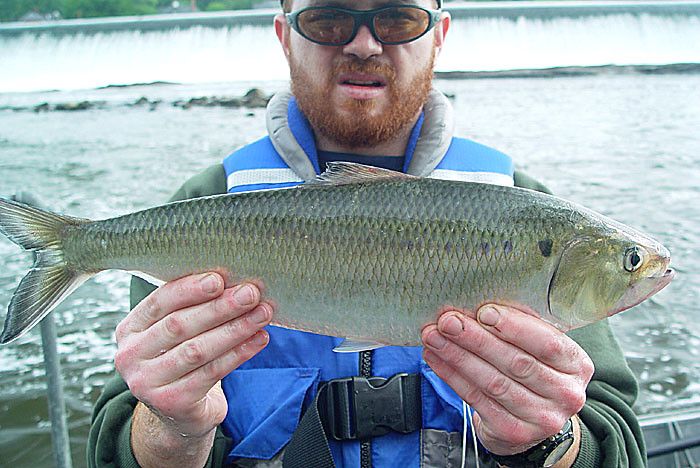
The American Shad belongs to the Clupeidae family. With an average of 38 cm, adult specimens can measure up to 76 cm and weigh between 0.9 and 1.4 kg. It can live up to 13 years old. Egg laying takes place in May, June or July. On average, the female lays 140,000 eggs, but can reach 600,000 eggs. It is fished in the spring. The American shad is characterized by its slender, high and very flattened body. The species has a very forked caudal fin and a low, elongated anal fin. It has no lateral line or adipose fin. Its color is silvery with a blue or blue-green sheen on the back and bright silver flanks. When entering fresh water for reproduction, the pigmentation may become darker, taking on a tan or copper hue, turning red for the head and belly parts. A black spot is visible near the top edge of the lid, sometimes followed by smaller spots. Its lower jaw fits into a notch in its upper jaw. It can also be recognized by its large scales that are easily detached. The ventral surface of the American shad is thin with saw tooth scales. With regard to internal characteristics, it has teeth in the premaxillary and lower jaw, a silver peritoneum and, between 53 and 59 vertebrae.
The American Shad is a famous fish you can catch in Austin.The Razorback Sucker
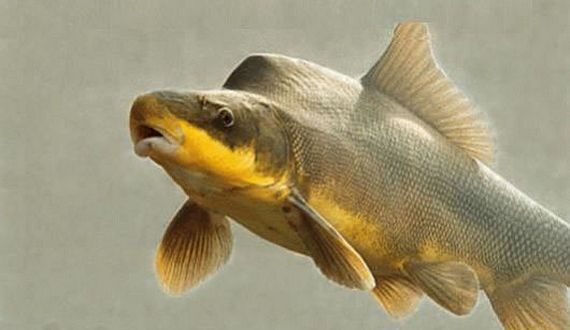
The Razorback Sucker belongs to the Catostomidae family. It is a relatively large catostomidae, reaching more than 91 cm in length and weighing 5 to 6 kg. It has a lifespan of 50 years. It nests from January to June. It cannot be fished because of its status as an endangered species. Razorback suckers are similar to other Catostomidae, with the exception of two main characteristics. The most characteristic features of the razorback sucker are a pronounced edge made of neural and internal bone that extends from the head to the dorsal fins, as well as elongated filaments on the gills. Females have a lower keel. Well-developed filaments are made for zooplankton feeding. It has a long snout, a long rounded head that is ventrally compressed and a ventral mouth with a split lower lip. There is 12 to 15 rays on the dorsal fin and the anal fin has 7 rays. Pelvic and anal fins are longer in males. It has an almost straight lateral line with 68 to 87 scales.
The Razorback Sucker is a famous fish you can catch in Austin.Our fishing forecast of Austin indicates the best time to go fishing in this city.
Our fishing forecast of Austin indicates the best time to go fishing in this city.
Our fishing forecast of Austin indicates the best time to go fishing in this city.
